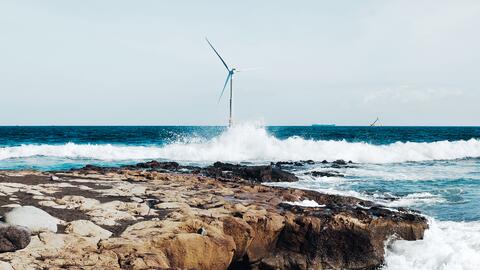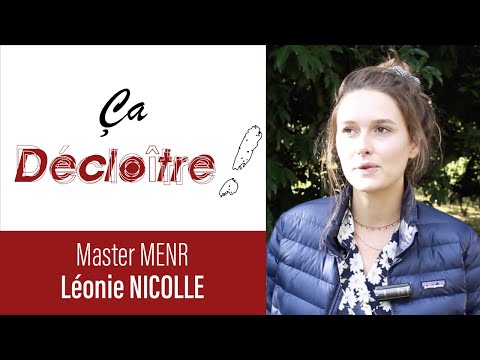Regions are at the heart of an unprecedented ecological and energy transition. Regional authorities, non-profits, companies, citizens and other local stakeholders are working to improve our daily lives, tackling challenges like reducing energy use and lowering mobility-related emissions, while at the same time supporting local and renewable production models. The goal of these efforts is to promote new forms of energy development that reduce our carbon footprint and rebuild an environment in which future generations can thrive.

The energy transition is an increasingly important subject of public debate and a key factor in political decision-making at the regional level. Stakeholders must acquire certain skills to have a perfect understanding of renewable energy projects. The Master’s-level Management of Renewable Energy Projects (MENR) – former title: Land and Sea) program addresses this rapidly changing environment by imparting the technical understanding of the wind, solar, methane, geothermal and sustainable building sectors that renewable energy project managers need to handle strategic, financial, regional, political and multi-partner projects.
The MENR program is delivered on an alternating, apprenticeship basis from September to September, with one week of classes every 21 days (approximately) at the Science Po Rennes campus and sometimes in Brest.
Students gain hands-on experience in the following areas:
- Identification and help in developing projects (identifying innovation, financing plans)
- Validation of equipment/facilities, prevention strategies, consultation, negotiation and conflict resolution
- Leveraging to enhance existing projects
- Preparation of calls for tenders with stakeholders, development of building projects
- Negotiation of contracts and concessions
- Understanding and building regulatory frameworks
- Analysis of impact assessments enhance projects
- Public relations and promotion
Interdisciplinary soft skills acquired in all five modules (UE):
- Acquisition of new or further skills
- IT tools
- Career environments and career planning
- Collection and processing of data; development of analytical skills
- Problem solving
- Creativity and innovation, training and/or counselling
- Scientific research
- Agility and flexibility
- Commitments, taking a position
- Management, responsibilities, self-assessment, interpersonal skills
- Team encouragement, communication in a multicultural environment
- Teamwork
- Conflict management
Program topics are explored in three different formats
- Lectures by research professors
- Applied learning classes taught by professional instructors working in the related field
- Case studies (workshops)
70 % of courses are ensured by professional instructors
- UE1 – Understanding the regulatory framework: law and taxation: environmental law and regulatory change / coastal law / understanding the regulatory framework of France’s regional energy and climate plan (PCAET) / corporate law / understanding the multiple structural components of operations contracts.
- UE2 – Analyzing the economic model of a renewable energy project: the basics of corporate finance / the basics of business mathematics / building a financing plan / evaluating the effects of financial gearing on the long-term viability of an economic model / business plan methodology / understanding renewable power generation costs / establishing and interpreting a business plan / using a risk matrix in project management / creating a dashboard of performance, cost and risk indicators / assessing the socio-economic impacts of renewable energy projects / analyzing profitability levels
- UE3 – Understanding debt financing techniques for renewable energy projects: understanding the financial markets and interest rates / bank loans / calculating debt-to-equity ratios / adapting loan amortization profiles to economic obligations / multi-year solvency assessments / preparing specifications for banking tenders / debt reprofiling / interest rate hedging / assessing bank guarantees
- UE4 – Managing the many components and stages of a renewable energy project: leading and managing the creation of a project company / preliminary studies / submitting requests for building and operations permits / leading and managing investment rounds / defining governance / drafting a shareholders’ agreement / analyzing industrial and other contracts / project management methods and tools / public relations tools and sensitive issues
- UE5 – Apprenticeship oversight and career planning
The Master’s-level MENR degree trains experts in the development of renewable energy projects for industry operators, regional authorities working towards the energy transition, consulting firms and other structures.
Roles: Examples: planning director, economic development director, project manager, consultant, public and institutional relations officer, development officer.
First-time, first-year Master (M1): incoming students take the entrance exam in fourth year.
First-time, second-year Master (M2): students must have obtained240 ECTS credits, equivalent to the first four years of the IEP program. Students who successfully completed another second-year Master’s program the year before can also apply to the program. Admission is based on an application and an interview for qualified applicants.
Continuing education, second-year Master applicants must have completed at least four years of undergraduate study. Applicants without a first-year Master’s degree can apply for recognition of previous learning. Applicants must demonstrate that they have at least five years of professional experience related to the topics covered in the program. Admission is based on an application and an interview for qualified applicants.
Second-year Master’s admission:
February 19, 2024 to April 4, 2024: Click here to register and download the application file.
+ The completed application file and supporting documents should be emailed as a single PDF to the address indicated on page 2 of the file.
If your application is accepted, you may be contacted for an interview with the academic program [director(s)].


